About the Client – Toyota, Mansfield MA
Located in Mansfield, MA, this Toyota parts distribution center has been a trusted provider of new and pre-owned Toyota vehicles for many years. In addition to vehicle sales, they operate a full-service maintenance department staffed by factory-trained technicians. To support daily operations, the team depends on durable metal service carts to transport parts efficiently between jobs.
Toyota Services Include:
- Vehicle service and repairs
- Tire and parts sales
The Challenge
The parts distribution center of Toyota in Mansfield, MA relies on large aluminum carts to organize and transport parts for daily orders. Over time, these carts experienced significant wear and damage from constant use, rendering many of them unsafe or inoperable. Because the carts were essential to the dealership’s everyday workflow, repairs needed to be completed efficiently and on a rolling basis to avoid disruption. The plan was to receive 1-2 carts shipped to our fabrication shop per week.
The Solution
To minimize disruption, the client arranged to send 1–2 damaged carts to our fabrication shop each week. Upon arrival, our team conducts a thorough inspection of each unit, identifying structural issues and surface damage. After repairs are completed, the carts are picked up and returned to the dealership’s warehouse, ready to rejoin the daily workflow.
“Thank you for all of the repairs. All of the modules came out great. We will be sending another batch before the end of the year!”
B.J. Sparrow
Product Manager, ToyotaPhase I:
Inspection and Repair
Upon arrival at our shop, each cart undergoes a detailed inspection. Damaged or broken welds are carefully ground down and re-welded. In cases where the metal is torn, punctured, or compromised, the affected sections are removed and replaced with a new aluminum tube, bar, or plate. Additional reinforcements are added to high-wear areas to extend the service life of each cart and improve overall durability.
Click on a photo to view full-sized.
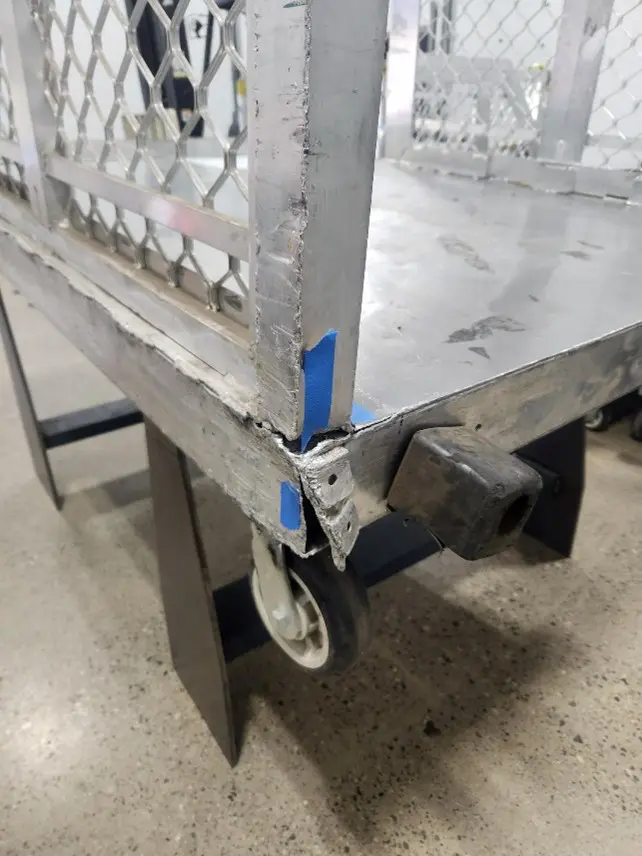
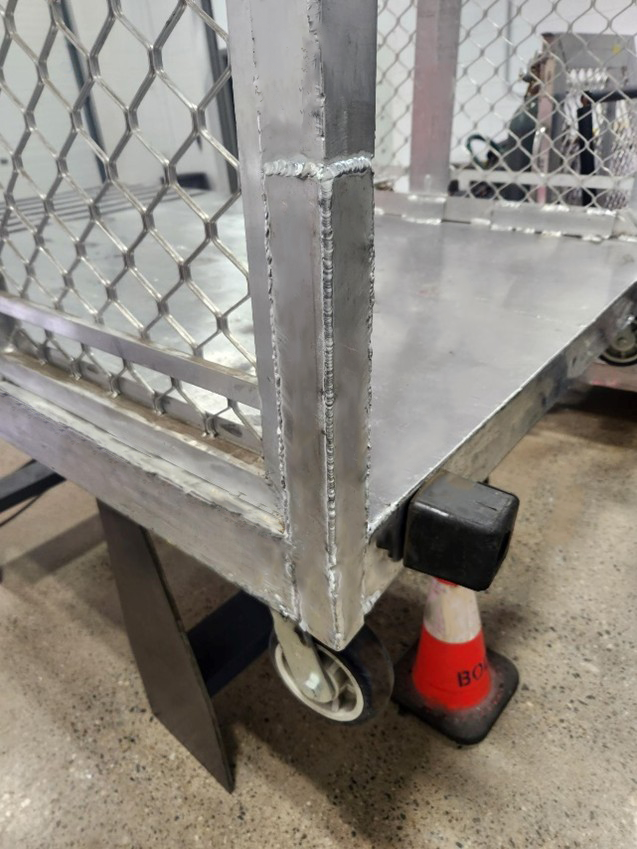
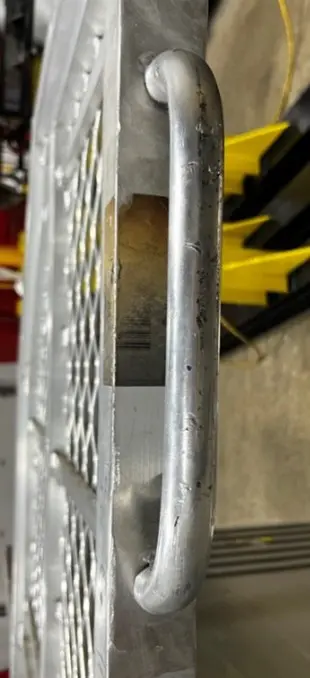
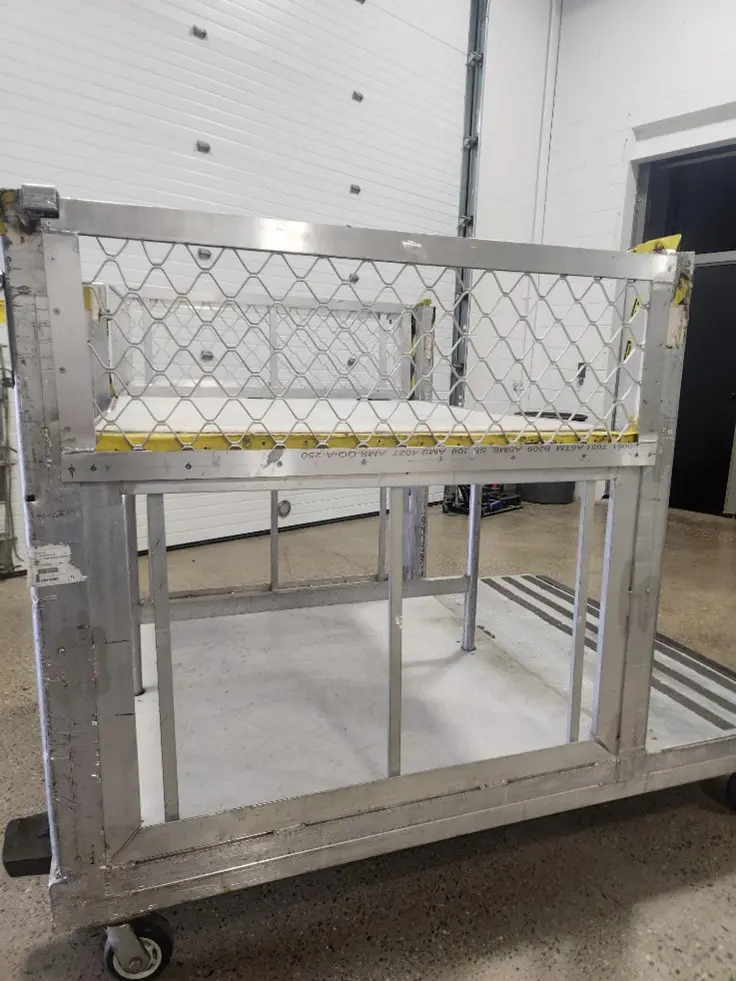
Phase II:
Reporting and Shipment
A weekly status report was filled out every week to maintain transparency and ensure clear communication. These reports outlined the work completed, the upcoming tasks scheduled for the following week, and an estimated return date.
Each cart was assigned a unique BODE identification number, allowing all service records, including photos and detailed repair notes, to be tracked and reviewed. Once a cart was fully repaired, a final service report was sent to the dealership and pickup was promptly scheduled.
Click on a photo to view full-sized.

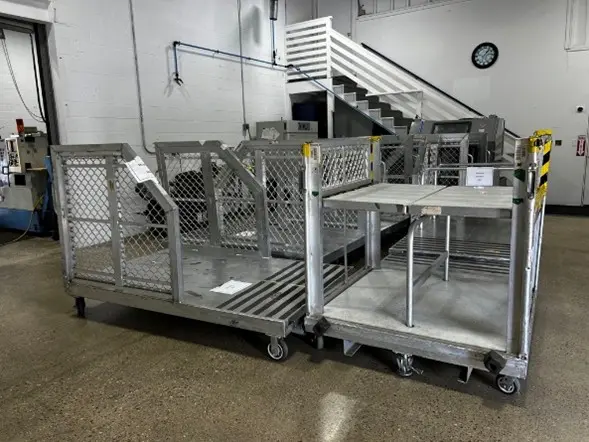
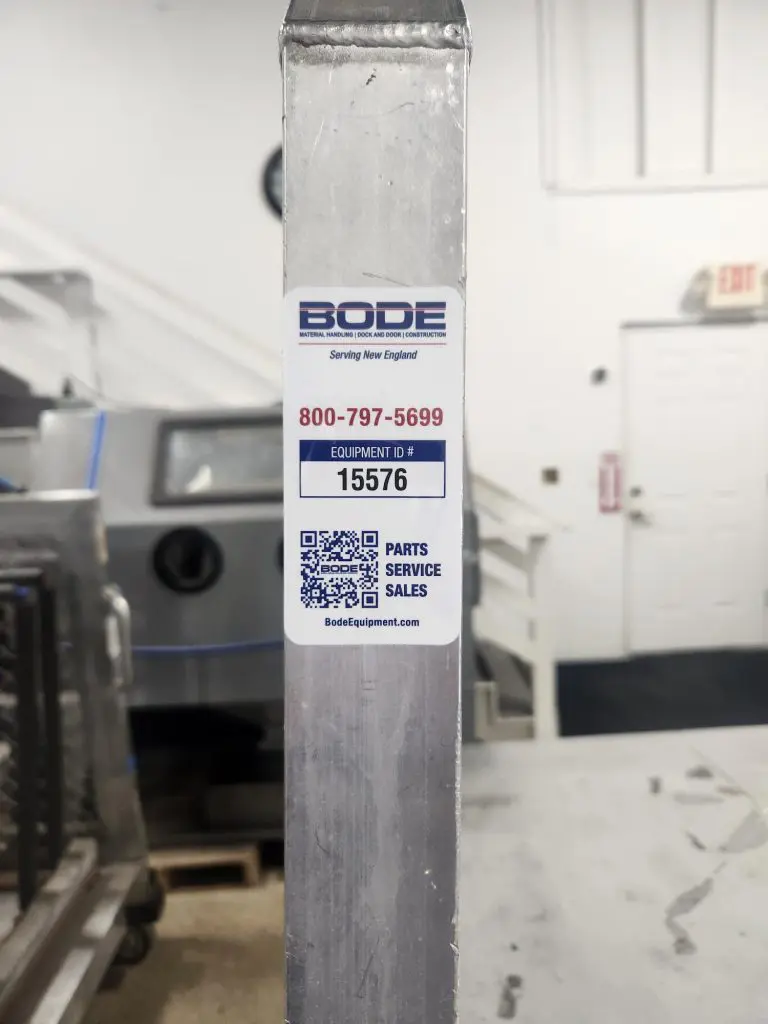
Major Products Selected
With this being a fabrication project, there were now major products. We utilized our fabrication shop, welding tools, and other necessary machines as needed.
